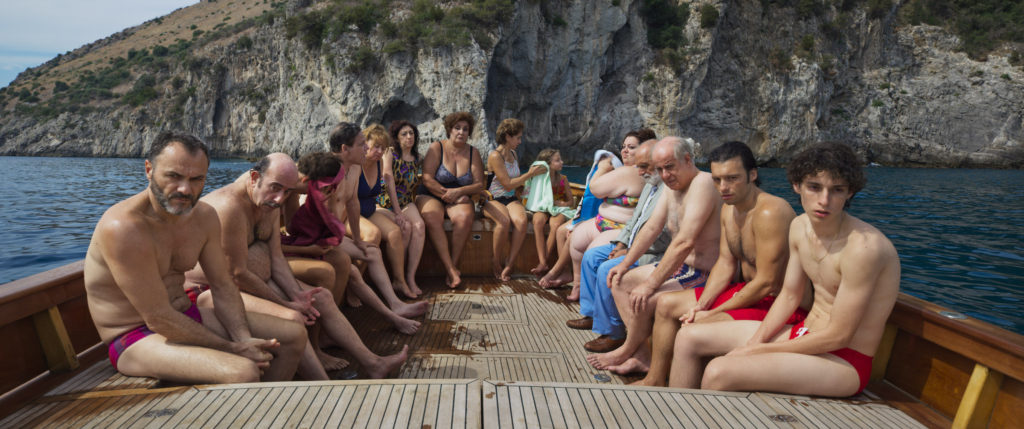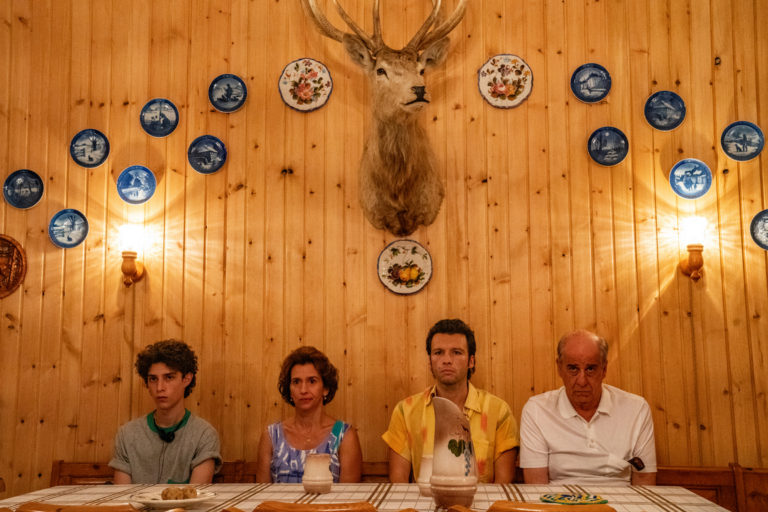The Hand of God (2021 | Italy | 129 minutes | Paolo Sorrentino)
Paolo Sorrentino’s feverish work in Il Divo and both The Young (and New) Pope have utterly dazzled me; so at first The Hand of God at first felt like a huge change of scale. Dialing back from the recent operatics, he confronts the other end of the lifespan from his Oscar-winning La grande bellezza, to give us a closely-observed family drama that’s also a tender ode to his cinematic influences. It may seem smaller than the grand sweep of the Italian mafia or the vast questions of faith and power at the head of the Catholic Church. But reflection, I suppose there is no bigger story than the one about how you became who you are.
Sorrentino has likened his decision to tell the story of his adolescence as something like taking a trip to the dentist: painful but necessary. After a mysterious and hallucinatory opening sequence in which a saint appears to answer a prayer in an ornate yet abandoned cathedral, the action becomes more earthbound. The setting is the bustling and messy Naples of his youth and he’s cast a terrific Filippo Scotti (a young, tousle-haired Italian with strong Timothée Chalamet energy) as his lonely, soccer-obsessed avatar, Fabietto. The teen floats quietly through schooldays and family occasions with a walkman on his hip and headphones constantly around his neck. The always-charismatic Toni Servillo is his kindly banker father whose adoring relationship with his prankster mother makes for a sweet homelife. Rounded out by an idealized college-aged brother and perpetually-offscreen sister, his immediate middle-class household is an island of relative normalcy in comparison to a sprawling outlandish extended family.

Sorrentino is, as always, an exceptional collector of characters, a generous showman of faces, and an inclusive portraitist of a wide variety of imperfect bodies. The first half of the movie introduces us to all of these: the menacing matriarch who munches mozzarella in a corner, a perpetually-disappointed lawyer uncle, the impossibly attractive aunt (Luisa Ranieri) who is the object of every unrelated male’s lust, and a robot-voiced suitor of an unmarried cousin whose baking hobby is a source of comedic relief. Regardless of their scams, stations, or occupations everyone in the city is united in their obsession with the possibility that the great Diego Maradona will come to play football for their club.
Eventually, as the title suggests, he does and his presence on the team indirectly saves young Fabietto’s life. In the wake of this formative event, the second half becomes a study in grief, recovery, and a coming-of-age. It is also not so subtly a cinematic notebook that pays tribute to the many influences that would come to shape Sorrentino oeuvre. The grounded mood of the first half becomes ever-heightened as he, via Fabietto’s personal awakening, revisits the people, events, and happenings that pushed him to persevere into a career in filmmaking.
As Fabietto falls in with new characters beyond his extended family, begins to engage with an emerging arts scene, and muddles his way through adolescence, it felt like the story could have concluded at multiple points. But as in life, there are often clean endings or clear through lines. Life may be messy, but it’s time well spent in the company of an up-and-coming young actor amid breathtaking images of the Italian countryside and closely-observed scenes of a vibrant and gritty city. Sorrentino revels in the beauty and the oddity of humanity and doles out surprises to the very end. It’s a treat to luxuriate in a stunning and deeply personal portrait of an artist on the cusp from a director at the height of his capabilities.
The Hand of God is now available on Netflix; locally you can watch it on a big screen at the Landmark Crest. An earlier version of this review appeared as part of our coverage of the Telluride Film Festival.




